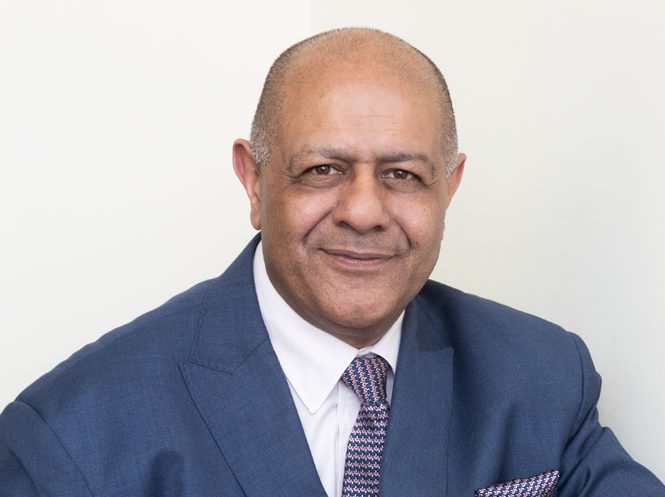Home | Court of Protection and Deputyship
Court of Protection and Deputyship
Our elderly client lawyers in Northampton and Kettering offer specialist advice and assistance to older and vulnerable people who are planning for their future or dealing with issues that are affecting them now.
We believe that each client is unique and we offer advice that is suitable for individual requirements

Susan Owens
Partner
Email Susan
01536 523434
View Our Team
If you are the family member, friend or carer of someone you can no longer make decisions for themselves, it will be necessary for the Court of Protection to appoint a Deputy to act on their behalf.
A Deputy is a person who the Court appoints to make decisions on behalf of another person (‘the donor’) either until they die or until such time as they are able to make their own decisions again.
Whilst it is often the case that close family members are appointed by the Court to act as a Deputy for a Donor, it isn’t always so. Accountants, solicitors, other professionals as well as local authorities are sometimes appointed, particularly if there is no-one else who is willing or able to be appointed.
The decisions that a Deputy might be empowered by the Court to make can be wide and relate to the Donor’s property and financial affairs and/or their personal welfare.
A Deputy is appointed by the Court following an application made by the proposed Deputy supported by medical evidence of the Donor’s incapacity. The process can be lengthy and sometimes complicated. It is important that a proposed Deputy obtains legal advice not just about the process but also regarding the extent of the power given to them by the Court and their ongoing obligations to keep records and report annually to the Court.
Our experienced and capable team of lawyers are able to advise and assist on all aspects of applying to the Court of Protection (including the legal, medical and court fees) and preparing the documents for you. They understand that often such advice is sought at a time of crisis and aim to simplify the issues and deal with them in a sensitive and practical

Susan Owens
Partner
Email Susan
01536 523434
View Our Team
We are able to advise and assist you with
If you are looking for advise or need assistance, we can help and guide you through the process.
Court of Protection and Deputyship
If you are the family member, friend or carer of someone you can no longer make decisions for themselves, it will be necessary for the Court of Protection to appoint a Deputy to act on their behalf.
A Deputy is a person who the Court appoints to make decisions on behalf of another person (‘the donor’) either until they die or until such time as they are able to make their own decisions again.
Whilst it is often the case that close family members are appointed by the Court to act as a Deputy for a Donor, it isn’t always so. Accountants, solicitors, other professionals as well as local authorities are sometimes appointed, particularly if there is no-one else who is willing or able to be appointed.
The decisions that a Deputy might be empowered by the Court to make can be wide and relate to the Donor’s property and financial affairs and/or their personal welfare.
A Deputy is appointed by the Court following an application made by the proposed Deputy supported by medical evidence of the Donor’s incapacity. The process can be lengthy and sometimes complicated. It is important that a proposed Deputy obtains legal advice not just about the process but also regarding the extent of the power given to them by the Court and their ongoing obligations to keep records and report annually to the Court.
Our experienced and capable team of lawyers are able to advise and assist on all aspects of applying to the Court of Protection (including the legal, medical and court fees) and preparing the documents for you. They understand that often such advice is sought at a time of crisis and aim to simplify the issues and deal with them in a sensitive and practical way.
Care Home Fees
Clients and their relatives are often worried about whether they will be able to leave anything for their loved ones to inherit if they have to pay for their care.
Under current rules, if a person who is in care or about to go into care has capital of more than £23,250 they will need to pay the full cost of their care. Their income will also be taken into account.
The cost of care varies across the country and also depends on the type of care being provided but it can be as much as £800 per week.
Our accredited Elderly Client specialist and her colleagues have experience in advising clients and/or their family members on the following: –
- The rules on paying for long term care,
- How to obtain funding assistance from Health and Social Services,
- What will happen if they have already given assets away to family members,
- Whether they will have to sell their home even if someone else still lives there,
- What happens if their co-own their home,
- How to recover money that has been spent funding care when statutory funding either from the NHS or Social Services should have been available,
- The options available to the executors of an estate where the person was in care and self-funded prior to their death.
We understand that the prospect of paying for care or continuing to do so can be daunting for clients and their relatives. This is especially true if they are worried that their funds will not stretch far enough to fund the care they require for the rest of their life.
The issue of self-funding can be complicated as the rules and guidance are lengthy and are interpreted as to individual care needs and financial means. Every case is different.
Our specialists will offer straightforward and practical advice, simplifying the complexities so that your family and you will understand how the rules apply to you, whether you can qualify for help and whether you can recover money already paid or protect your assets.
Lasting Powers of Attorney
A lasting power of attorney (also known as an LPA) is a legal document that lets you (the ‘donor’) appoint people (known as ‘attorneys’) to make decisions on your behalf.
There are 2 types of lasting power of attorney and you can choose whether to make 1 type or both of them. You can decide to appoint different people to act in each of them if you choose.
Health and Welfare Lasting Power of Attorney
This allows you to appoint an attorney or more than one to make decisions about: –
- medical treatment for you
- whether you should move into a care home
- life sustaining treatment
- your day to day wellbeing
This document can only be used by your attorneys once it has been registered and you are unable to make these decisions yourself.
Property and Financial Affairs Lasting Power of Attorney
This allows you to appoint an attorney or more than one to make decisions about:-
- collecting your benefits
- selling your home
- paying your usual bills
- paying for other things you need
- investing your money/changing your bank account
This document can only be used by your attorneys when it has been registered either whilst you are well and with your permission or if you are no longer able to make decisions yourself.
If you make one or both types of LPA, it is important to know that as long as you can still make your own decisions, you can change your mind, even if the document has been registered with the Office of the Public Guardian.
The documents give a great deal of power to the person or people you appoint as your attorneys. Remember that if you lose your mental capacity, they will make your decisions for you. Therefore, It is important to obtain specialist legal advice so that you can make informed choices about what to do for the best, who to appoint, whether to restrict the power in any way and whether to register the document immediately with the Office of the Public Guardian. Our team have years of experience in advising clients on powers of attorney, simplifying the issues and providing practical assistance so that they can make the right choices for them.
If your family member or friend is no longer able to make decisions for themselves, then they cannot make a Lasting Power of Attorney and it will be necessary for a Deputy to be appointed by the Court of Protection to act for them. Our specialist lawyers understand that loved ones often need assistance at a time of crisis and will deal with your situation in a sensitively so that the court process is as smooth and straightforward as possible.
A lasting power of attorney (also known as an LPA) is a legal document that lets you (the ‘donor’) appoint people (known as ‘attorneys’) to make decisions on your behalf.
There are 2 types of lasting power of attorney and you can choose whether to make 1 type or both of them. You can decide to appoint different people to act in each of them if you choose.
Health and Welfare Lasting Power of Attorney
This allows you to appoint an attorney or more than one to make decisions about: –
- medical treatment for you
- whether you should move into a care home
- life sustaining treatment
- your day to day wellbeing
This document can only be used by your attorneys once it has been registered and you are unable to make these decisions yourself.
Property and Financial Affairs Lasting Power of Attorney
This allows you to appoint an attorney or more than one to make decisions about:-
- collecting your benefits
- selling your home
- paying your usual bills
- paying for other things you need
- investing your money/changing your bank account
This document can only be used by your attorneys when it has been registered either whilst you are well and with your permission or if you are no longer able to make decisions yourself.
If you make one or both types of LPA, it is important to know that as long as you can still make your own decisions, you can change your mind, even if the document has been registered with the Office of the Public Guardian.
The documents give a great deal of power to the person or people you appoint as your attorneys. Remember that if you lose your mental capacity, they will make your decisions for you. Therefore, It is important to obtain specialist legal advice so that you can make informed choices about what to do for the best, who to appoint, whether to restrict the power in any way and whether to register the document immediately with the Office of the Public Guardian. Our team have years of experience in advising clients on powers of attorney, simplifying the issues and providing practical assistance so that they can make the right choices for them.
If your family member or friend is no longer able to make decisions for themselves, then they cannot make a Lasting Power of Attorney and it will be necessary for a Deputy to be appointed by the Court of Protection to act for them. Our specialist lawyers understand that loved ones often need assistance at a time of crisis and will deal with your situation in a sensitively so that the court process is as smooth and straightforward as possible.
Check Out
Our Latest
Tips & News
Read more about our top tips and keep up to date with the latest news in law.
What Our Customers are saying
Don’t just take our word for it take a look at what our customers are saying.




